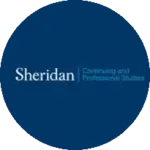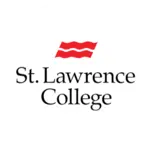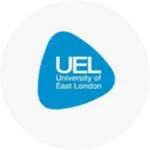Study in Australia

Overview
Australia is a popular destination for international students because of its world-class colleges, dynamic cultural backgrounds, towns, and friendly culture. Australian colleges provide a broad spectrum of programs aimed at educating students with real-world skills and worldwide possibilities, including business and engineering, health sciences, and creative arts. With a good standard of living and a safe, supportive environment, Australia is an excellent alternative for students wishing to study abroad.
Why Study in Canada?
World-class education
Canada offers globally recognized degrees and diplomas, with top-ranking universities known for academic excellence and research opportunities.
Safe & welcoming
Canada is known for its low crime rate and inclusive society, creating a safe and friendly environment for international students.
Multicultural society
Canada embraces diversity, with people from all over the world, allowing students to experience various cultures and feel at home.
Research opportunities
Canadian universities emphasize research and innovation, offering students access to cutting-edge facilities and projects across various fields.
Work & PR options
Compared to other popular study destinations, Canada offers quality education at relatively lower tuition fees, making it a cost-effective choice.
Affordable tuition
International students can work part-time during studies and full-time after graduation, with clear pathways to permanent residency through programs like Express Entry.
High living standards
Canada consistently ranks high in quality of life, offering excellent healthcare, infrastructure, and a clean environment for a comfortable student life.
Affordable tuition
From mountains and lakes to forests and coastlines, Canada’s stunning natural beauty offers students endless opportunities for travel and outdoor adventures.
Why Study in Australia?
Perfect Blend of Study and Work
Scholarships and Financial Support
Cutting-Edge, Research-Driven Learning
Comfortable Climate for Indian Students
Post-Study Work and PR Pathways
QUALIFICATIONS OFFERED
- First Professional Degree
- Diploma
- Associate Degrees
- Applied Degrees
- Bachelor’s Degree
- Master’s Degree
- Doctorate
TEST REQUIREMENT
- TOEFL or IELTS scores as a proof of English proficiency. Depending upon the institution, the score requirements may vary between 80-100 for TOEFL and 6.0 – 7.0 bands in IELTS.
- For MBA admission a good score in GMAT is required.
EDUCATION COST
TUITION COST
- Diploma & Advanced Diploma Courses cost range from CAD$11,000 – CAD$13,000 per year depending on the course.*
- Bachelor’s Degrees cost range from CAD$13,000 – CAd$19,000 per year for most under-graduate degrees*
- Post-graduate Degrees cost ranges from CAD$12,000 and ranges up to CAD$22,000*
* Fees given are of informative nature may vary from university to university
TUITION COST
Approximately CAD 10000 for 1st year.
WORK RIGHTS & STAY BACK POST STUDY
TUITION COST
- Part time work right : Off campus 20 hours per week – 40 hours per week during vacation
- No limit for on campus work
- Upto 3 years stay back for ( 2 years study )or equal to the course duration if it is less than 2 years
INTAKE
- January
- May
- September
Universities














The Australian education system is well-known for its exceptional academic standards, practical learning style, and internationally renowned qualifications. Students can select from a variety of programs provided by universities, colleges, and vocational schools, each targeted to a certain career goal. Australia continues to be a top choice for high-quality foreign education because of its emphasis on research, innovation, and post-study employment possibilities.
With significant admissions in February and July, as well as a smaller intake in November, Australia offers international students a variety of alternatives for starting their studies.
International students must verify their English language competency on recognized exams like the PTE Academic, TOEFL, or IELTS to be admitted to Australia. A minimum IELTS score of 6.0 to 6.5 overall, with no band lower than 6.0, is required by the majority of Australian institutions. PTE Academic scores normally fall between 50 and 64, while TOEFL iBT scores are commonly recognized to be between 60 and 90. Specific score requirements may differ according to the course and institution, therefore, applicants should check the prerequisites before applying.
Do you have Questions ?
Find answers to common queries about our services, processes, and policies. If you need further assistance, feel free to reach out.
1.What are the primary intakes for studying in Australia?
Australia’s universities have three primary intakes: February, July, and a smaller intake in November for particular programs.
2.What are the English language requirements for studying in Australia?
Students must typically demonstrate English proficiency through IELTS (6.0-6.5), TOEFL (60-90), or PTE Academic (50-64), according to the university and program.
3.Can I work while studying in Australia?
As an international student with a valid visa, you can work up to 20 hours per week during the semester and full-time during breaks, such as holidays.
4.What is the cost of studying in Australia?
International students in Australia pay tuition costs that range from AUD 15,000 to AUD 45,000 per year, according to the program. Living costs might also vary from AUD 10,000 to AUD 20,000 per year.
5.What are the post-study work options in Australia?
After finishing their degree, international graduates can apply for a Post-Study Work Visa (subclass 485), which allows them to work in Australia for two to four years, depending on their qualification level.
6.How do I apply for a student visa to Australia?
You must first obtain an offer letter from an Australian institution before submitting your online application for a student visa via the Department of Home Affairs website. You must also provide evidence of your financial stability, health insurance, and fluency in English.
